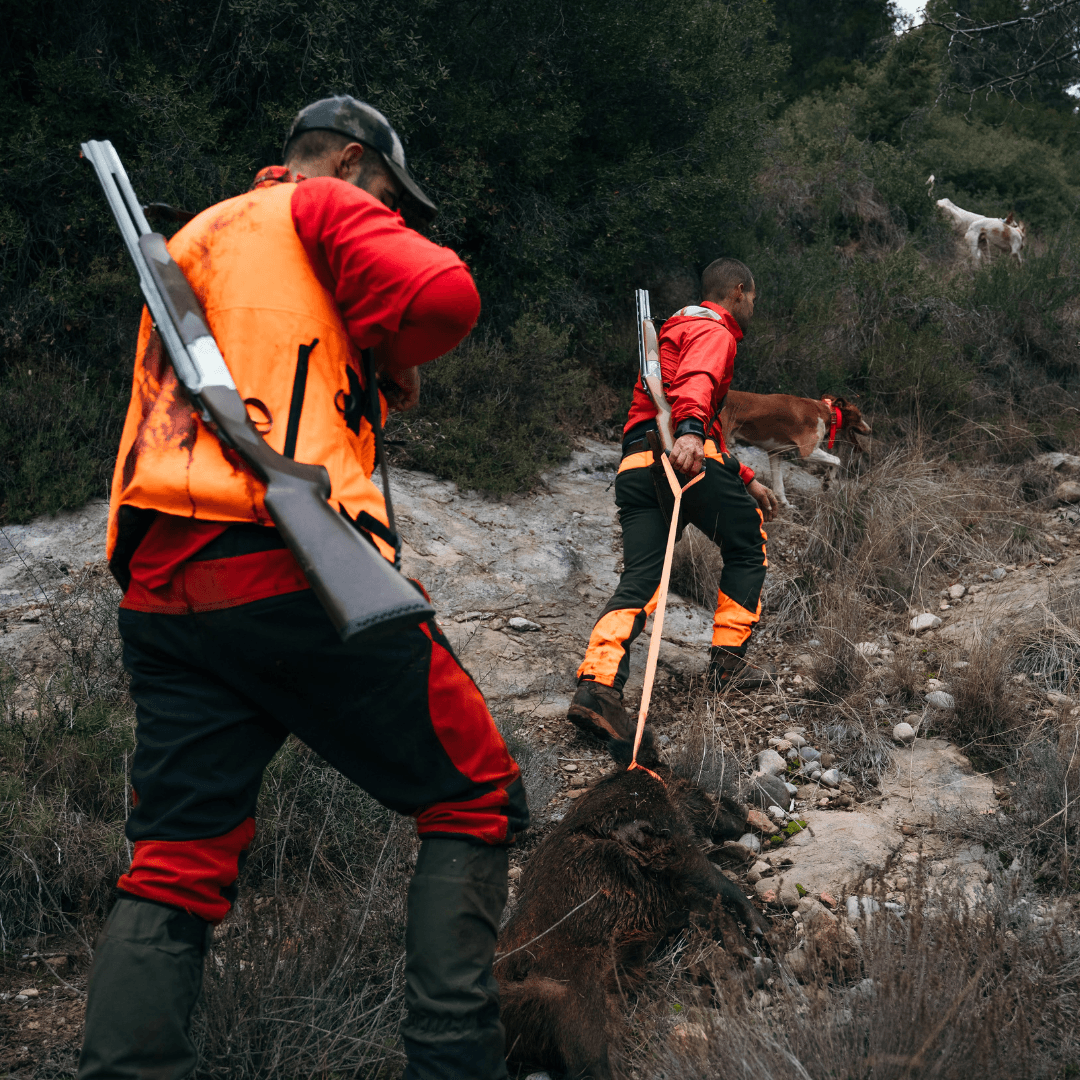New alert for Aujeszky's disease

Wild boar hunting can pose a significant health risk to dogs, as there is a chance that they may contract a deadly disease called Aujeszky's disease, also known as pseudorabies or wild boar rabies. Now that the hunting season has ended for months and the nightly and damage hunts have begun, care must be taken with regard to contact between dogs and these wild pigs. This infection is caused by a herpesvirus that primarily affects pigs and wild boars, but can be transmitted to other animals, including dogs. When dogs contract this disease, they usually die within a few days due to the severity of the symptoms and the lack of an effective treatment.
Aujeszky's disease is characterized by its rapidity and lethality, and unfortunately, there is no cure or vaccine available to prevent it in dogs. This disease has an incubation period of between 2 and 7 days, from when the virus enters the dog's body until the first symptoms appear. Sick dogs may present vomiting, diarrhea, loss of appetite, difficulty breathing, nervousness, howling, behavioral changes, neurological disorders, etc.

The main recommendation to prevent the spread of this disease is to prevent dogs from coming into contact with wild boars or any remains of these animals. This includes both direct contact during hunting and exposure to wild boar remains that may be found in the field. Hunters and dog owners should be aware of this risk and take appropriate preventive measures, such as keeping dogs under control and supervision during hunting activities.
Furthermore, it is crucial that hunters and dog owners educate themselves adequately about the signs of Aujeszky's disease and seek immediate veterinary advice if they suspect a dog has been in contact with a wild boar or is showing symptoms of the disease. Prompt identification and management of suspected cases can help prevent the spread of this deadly infection and protect the health of other animals.

How can we prevent contracting the disease?
- Do not feed the animals raw wild boar meat or offal.
- Prevent dogs from biting shot wild boars.
- Control walks in the mountains to avoid the possible ingestion of wild boar carrion or our pet coming into contact with or fighting a wild boar.

What to do if our dog gets infected?
First of all, you need to make sure that what the dog has is not a rabies infection, since the initial symptoms are similar.
Once this is done, the next step outlined in the document is to report the case to the Animal Health Prevention Service (SPSA) of Catalonia. This must be done by attaching a form. According to the Department, all the requested data available must be communicated, along with any other information that may be relevant. When handling the animal, it is recommended to follow all biosecurity measures to minimize the risk of contagion.